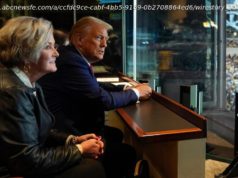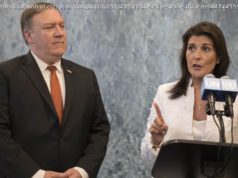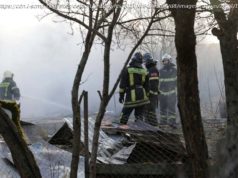The Pentagon on Monday expressed skepticism about Russia’s announcement to withdraw a “significant” number of troops from Syria.
Russian President Vladimir Putin on Monday hailed the defeat of ISIS terrorists in Syria during a visit to the war-torn country and also announced plans to withdraw a “significant part” of Russia’s troop presence in Syria.
“The fact that we defeated ISIS, one of the main terrorist groups, here in Syria is extremely important for Syria, Russia, and the entire world,” Putin said, according to a transcript provided by his office .
Putin’s comments about defeating the terrorists and sending troops home may play well to a domestic audience in Russia after the 65-year-old leader confirmed last week that he plans to seek re-election.
Globally, though, Putin conceded that “the threat of terrorism remains high.”
In 2015, Putin sent special forces and combat aircraft to Syria in a campaign to prop up the regime of Syrian leader Bashar Assad, who at the time was struggling for survival after terrorists and rebel groups made significant gains. Iran also has been boosting Assad, sending weapons and thousands of soldiers to Syria.
On Monday, Assad met face to face with Putin at Russia’s Khmeimim air base in Syria and thanked him for the support. Also, despite withdrawing some troops the Russian leader indicated that Moscow would retain its two large bases in Syria, both the Khmeimim air base located southeast of Syria’s top port city of Latakia and the Tartus naval base in Syria’s second-largest port city
The Pentagon expressed skepticism about Putin’s announcement to send some Russian troops home.
“Russian comments about removing forces do not often correspond with actual troop reductions, and these statements do not affect U. S. priorities in Syria,” U. S. Marine Corps Major Adrian Rankine-Galloway, a Pentagon spokesman, told CNBC. “The global coalition will continue to operate along with local forces to defeat ISIS. Our goal is a stabilized and liberated territory, which allow displaced Syrians and refugees to return.”
Experts say Putin’s plans to send troops home are partly to ratchet up the pressure on the Trump administration to withdraw U. S. forces from Syria. In October, a senior U. S. military officer indicated there were about 4,000 American troops in Syria.
“The Assad-Russia-Iran proxy network alliance are now turning their sights toward trying to force the United States out of Syria,” said Nicholas Heras, a Middle East security fellow at the Center for a New American Security, a progressive think tank based in Washington.
Heras added, “The greatest existential threat to Assad’s regime in Damascus is if the Trump administration decides that it will stay in Syria indefinitely. That then creates a type of pressure on Assad that could down the line leave to a collapse of his regime.”
Meantime, analysts say Russia’s declaration that ISIS has been defeated is still premature since there are still ISIS cells that are spread throughout Syria.
The U. S. continues to rely on the Syrian Democratic Forces, a coalition of predominantly Kurdish fighters, to battle against ISIS in Syria. The U. S. also has several military outposts in Syria for the mission to defeat the terrorist group.
Regardless, recent reports have also suggested Russia may want to turn its attention now to help in the fight against ISIS in parts of western Iraq. Such a move, though, would likely face opposition from the U. S.-led coalition battling the terror group.
“The attention of the international counter-terrorism coalition should be focused on how to destroy militants in Iraq’s western regions in order to prevent the comeback of ISIS to Syria, and how to exclude the revival of the Islamic Caliphate there, but not on the deployment of its own military bases in Syria,” Gen. Valery Gerasimov, Russia’s first deputy defense minister, said last week, according to remarks carried by the state-run Tass news agency.
Tass quoted the Russian general as saying that the U. S. coalition had failed to get the job done in Syria.
“Contrary to the statements by our Western partners, the operations of the international anti-terror coalition led by the United States have not yielded any considerable successes on the territory of the Syrian Arab Republic,” Gerasimov said.
— Reuters contributed to this report






